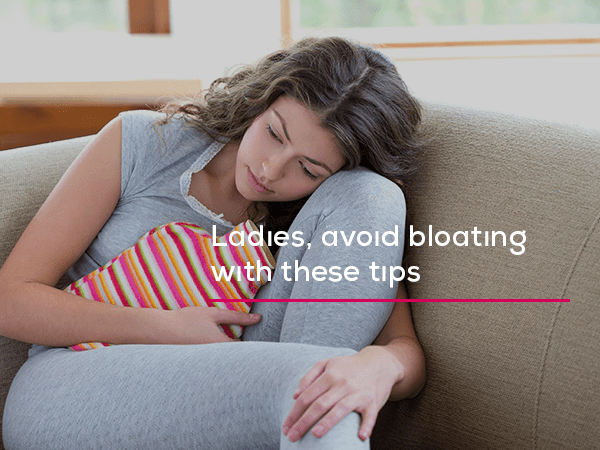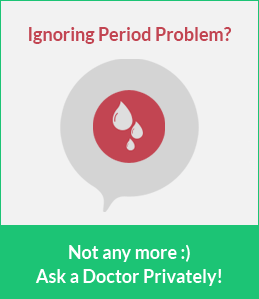Period bloating can be uncomfortable and may negatively affect self-confidence. Women may feel like they have gained weight or that their stomach is swollen and sticking out. Fortunately, there are changes women can make that may reduce these symptoms. This article offers tips that may help improve period bloating. It also explores what might be causing bloating during a period and when it is a good idea to see a doctor.
What is Period Bloating?
Period bloating is when a woman feels her abdomen is heavy and swollen just before and at the start of her period. Bloating is also one of several premenstrual syndrome (PMS) symptoms that can occur 1-2 weeks before a woman’s period. Other than bloating, PMS symptoms include:
- mood swings
- tiredness
- cramps
- acne
- food cravings
- swollen breasts
- headaches
- backaches
Bloating before and during a period may result from changes in levels of the sex hormones progesterone and estrogen. About a week before a woman’s period starts, levels of the hormone progesterone fall. Reduced levels of progesterone cause the uterus to shed its lining, which is what causes menstrual bleeding. As well as causing menstrual bleeding, research suggests that changes in progesterone and estrogen levels cause the body to retain more water and salt. The body’s cells become swollen with water, causing the feeling of bloating.
Remedies
Avoiding foods high in salt and refined carbohydrates may help relieve period bloating.
There are many lifestyle changes that a woman can make that may help to reduce water retention. In turn, these changes may help relieve the symptoms of period bloating.
- Avoid salty foods
The sodium in salt can increase the amount of water a person’s body retains. Avoiding salty foods may help decrease water retention and improve period bloating.
- Eat potassium-rich foods
Eating foods rich in potassium may help reduce period bloating. Potassium-rich foods that may reduce period bloating include:
- dark leafy greens, such as spinach
- sweet potato
- bananas
- avocados
- tomatoes
- Try diuretics
If something is a diuretic, it means that it increases urine production. Producing more urine helps the body to get rid of water. In this way, diuretics help to reduce water retention. Since water retention causes period bloating, diuretics may provide relief. Many foods have natural diuretic properties. Women who are looking to relieve period bloating may want to try eating more of these types of food. Foods that act as natural diuretics include:
- asparagus
- pineapples
- peaches
- cucumber
- leeks
- ginger
- garlic
- Drink lots of water
Staying hydrated is often recommended for period bloating. Many people believe drinking more water can help to improve water retention, by improving kidney function.
- Avoid refined carbohydrates
Refined carbohydrates, such as white flour and processed sugars, cause spikes in blood sugar levels. This increases the level of insulin in the blood, which causes the kidneys to retain more sodium. For those looking to reduce water retention and improve period bloating, it is best to avoid refined carbohydrates.
- Exercise regularly
As period bloating is a PMS symptom, regular exercise may help to reduce it. To stay healthy, people should aim to get 2.5 hours of moderate exercise a week.
- Consider the birth control pill
A 2008 study suggests the birth control pill may help improve period bloating. However, some women report that the birth control pill makes them feel more bloated. The effect of the pill can vary from woman to woman, so it is best to discuss the birth control pill with a doctor and to try a few different types to see which one works best for managing PMS.
Trying one of several of the lifestyle changes mentioned in this article may help to improve period bloating. If none of these changes help, and period bloating is disrupting daily life, then a doctor can provide further advice.







,